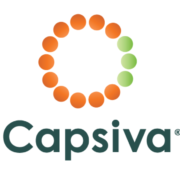Podcast: Rite Aid’s Brace for Bankruptcy
/in Broker Management, Retail Strategy /by DavidDon’t miss my guest appearance with Mark Young and Justin Girouard on the CPG Insiders podcast where we talk about what the progression of Rite Aid’s bankruptcy filing could look like over the next few months for vendors and consumers. Click here for the link.
Podcast: Understanding Retail Buyers
/in Broker Management, Retail Strategy /by BeckyDon’t miss my guest appearance with Mark Young on the CPG Insiders podcast where we talk about what you should know before meeting with a retail buyer. Click here for the link.![]()
![]()
![]()
![]()
7 Common CPG Missteps to Avoid with a New Product
/in Broker Management, Retail Strategy /by BeckyNavigating the CPG retail world is complex and intricate, and bringing a new product to market can be difficult, even for seasoned professionals. It’s important to look to an expert before you take the jump into the retail market. Here are 7 common CPG missteps I see people make that can sink their product before it even has a chance for success.
7 common CPG missteps
- Mismanagement of brokers. Failing to keep a highly experienced, razor-sharp eye on everything brokers do from the minute they receive samples is a common misstep. Also, it is often “fatal” to send a broker alone to show your product to a buyer without adequate preparation, detail, and without a skilled master broker or highly seasoned sales executive to represent the brand in a comprehensive way.
- Incomplete retail presentation. You’ve no doubt heard the expression, “you never get a second chance to make a first impression.” This is especially true in retail. An incomplete or disjointed presentation turns off buyers who will reject your product and move on to the next.
- Bad package design. While your product is very important, the package design is the first thing consumers and retail buyers will see. If it’s not optimized for a retail store shelf environment, easy consumer comprehension and appeal to the target audience, it won’t make it to the shelves, or stay long if it does.
- Wasting your first meeting. Showing up unprepared to a meeting with a retail buyer at a trade show or in his or her office is the best way to not get a second meeting.
- Not understanding the true costs. Getting products on retail shelves can be an expensive endeavor. It’s a big mistake to not have a realistic plan and budget before you start the process.
- Being pressed into an unfavorable deal. A bad deal is a bad deal, even if it’s from a “good” retailer or broker. Once you’ve entered into an agreement, it’s too late to negotiate better terms.
- Hitting the shelves without an action plan. Unfortunately, even the best products don’t really sell themselves, and getting them on retail shelves is just the first step. Without a plan to drive sufficient velocity and awareness, your product is likely to be delisted after just a few months.
Avoiding these 7 common CPG missteps can help smooth the path to retail success. I share lots of ideas and tips on my blog, but if you would like to work with me on a consulting basis, please contact me at david@biernbaum.com.
22 Questions You Must Ask Before Hiring a Broker
/in Broker Management /by BeckyHere’s a news flash: It’s usually not a good practice to hire the first broker you meet. You really need to know who you are hiring before you actually hire them. The interview process can be a valuable learning experience for you and your business and is the best way to really understand and gain confidence in the broker who will be representing you and your brand to retail chains.
Get to know your broker with these 22 questions
1. Who will actually be making the sales calls on my behalf at the appointments? It’s crucial to get a bio and resume for each account representative, for each retailer to be covered, and ask follow-up questions.
2. How do you go about setting up the appointments?
3. What are your standard processes and procedures and what should be my expectations?
4. How much lead time will I typically receive if I need to attend? (Keep in mind that in most cases, you will want to ensure you attend the appointment.)
5. What is your plan for introducing my products to retail accounts? Please explain the steps and procedures you will recommend and follow.
6. What is your follow through strategy if my products are not accepted at the first meeting? Please give me examples of other real world scenarios when and where that happened.
7. What are your philosophies about each of your retail chains regarding the infrastructure, systems, politics, decision-making process, etc.?
8. What other product lines do you currently represent, in which categories, and how will this impact the commitment, availability and time allotment to my product and brand?
9. Will there be a conflict of interest in product lines, resources and time commitment?
10. Do you have established relationships with category managers who buy my type of product line and brands?
11. How large is your organization and who are the key players I will interact with during and after the process has begun?
12. How do you communicate with your top clients, and how often?
13. Do you prioritize by mid-size and small clients, and if so, what is that priority?
14. Do you have any systems in place for rapid response?
15. What is your turn-around time on responses to inquiries via telephone and e-mail?
16. Do you do most of the retailer forms and paperwork for your clients, or do you ask the client to fill out the paperwork and send it all back to you, completed?
17. What is your procedure to secure ads and promotions at retail accounts and how will I know that I’m never missing out on timely opportunities?
18. What roles do you see your company performing, for which you are responsible?
19. Which roles do you perceive we as clients should be held responsible?
20. What types of management and processes do you need from me and my company?
21. What examples will you share with me and your other principals of partnerships that work well for you and your manufacturer?
22. Can you give me examples of situations that do not work quite as well and explain why?
Getting to know your broker before you hire him or her is very important. These 22 questions are just the tip of the iceberg. If you want to go deeper, let’s discuss! ![]()
![]()
![]()
![]()
“Driving consumer products to maximum success through increased market-share and continuous growth, while building value and equity for my clients’ brands, is my passion and expertise.” — David Biernbaum
Latest Blog Posts
Archive
- February 2026
- January 2026
- December 2025
- October 2025
- September 2025
- August 2025
- August 2024
- July 2024
- June 2024
- May 2024
- April 2024
- March 2024
- February 2024
- January 2024
- November 2023
- October 2023
- May 2023
- April 2023
- March 2023
- January 2023
- February 2021
- December 2020
- November 2020
- April 2019
- September 2018
- August 2018
- April 2018
- March 2018
- February 2018
- January 2018
- November 2017
- October 2017
- September 2017
- May 2016
- September 2015
- March 2013
- February 2013
- July 2012





